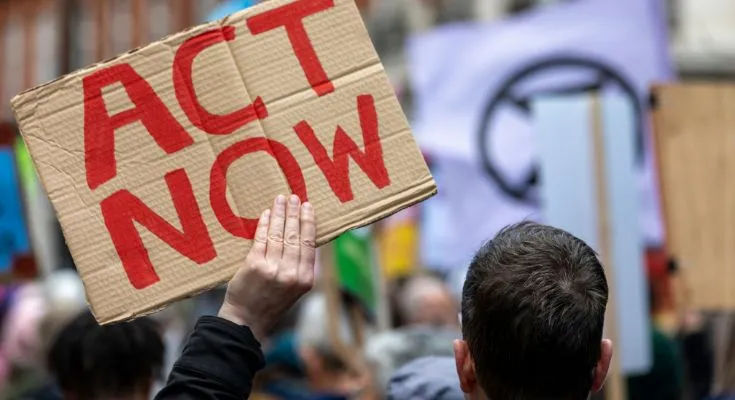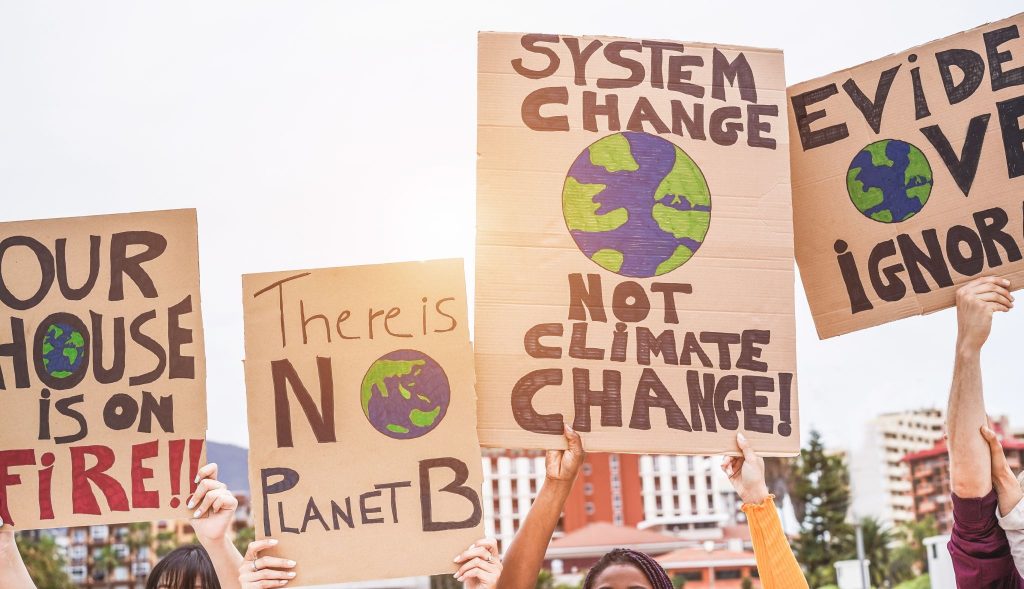It’s easy to believe that we won’t be able to defeat climate change, especially when faced with the realities of a warming planet and the persistent problem of climate science misinformation.
Nonetheless, climate change is occurring. Look no farther than the Earth’s increasingly destructive natural disasters, impending water crisis, and melting ice sheets.
According to the Intergovernmental Panel on Climate Change (IPCC), in order to counteract rising temperatures, we must drastically reduce carbon emissions and address growing carbon dioxide levels. That will not be easy.
At the 2022 Conference of the Parties to the United Nations Framework Convention on Climate Change (COP27), world leaders elected not to make a major shift away from widespread reliance on fossil fuels, instead expressing concerns over failures to reduce emissions. The UN Environment Programme’s 2022 Emissions Gap Study, released soon before COP27, concluded that there was “no plausible pathway to a 1.5 C future” without “rapid societal reform.”
“Limiting warming to 1.5 degrees Celsius is achievable within the principles of chemistry and physics,” Jim Skea, a top UN Intergovernmental Panel on Climate Change scientist, said in 2018.
But, Charlie Jiang, a former Greenpeace climate activist, told Mashable in 2019 that there is reason for optimism. Greenpeace climate campaigners collaborate with climate change advocacy groups like Zero Hour to oppose fossil fuel businesses and politicians that are impeding transformative climate change action. Greenpeace’s strategy has included putting pressure on political contenders to release comprehensive proposals that invest in clean energy and phase out fossil fuels while protecting jobs.
President Joseph Biden has since made various climate action pledges, including co-leading the Forest and Climate Leaders’ Partnership (FCLP) deforestation project, increasing production and use of zero-emission vehicles (ZEVs), and committing $1 billion to the Green Climate Fund. The administration also set a new aim of having a carbon-free power sector by 2035 and a net-zero-emissions economy by 2050.
“Despite all of the frightening news, this is a promising time for bold transformation… We deserve a brighter future than the one handed to us by our complacent politicians and fossil-fuel millionaires “Jiang stated.
Here’s how you can help fight the climate issue.
1. Participate in climate change strikes

Jiang believes that coming together across demographic lines can be one of the most effective tactics in combating the effects of climate change.
Climate protests, on the other hand, have long been used to draw attention to growing climate challenges, bad actors, and environmental threats.
The Global Climate Strike is an annual international walkout to highlight the importance of international leaders taking the climate problem seriously. It’s part of Greta Thunberg’s monthly protest effort Fridays for the Future, as well as the yearly Global Day of Climate Action.
Visit the websites of Fridays for the Future, the U.S. Youth Climate Strike Coalition, or the World Climate Strike to discover a protest near you.
If you wish to take more action, the World Climate Strike website has a multitude of materials, including social media promotion instructions and visuals for posters, flyers, and buttons. It also provides toolkits for specific groups, such as employees or faith-based organisations, to utilise to persuade others to join.
If you want to participate but can’t find a strike or protest near you, the U.S. Youth Climate Strike Coalition has a thorough guide that anyone wishing to organise their own Friday climate change protest can use. Similar tools are available through the World Climate Strike. These lessons can also be used to plan subsequent strikes throughout the year. For more ideas, check out the Carnegie Endowment for International Peace’s Climate Protest Tracker, which tracks international climate protests and their participants, goals, and outcomes.
2. Promote inclusive climate solutions
Climate activists can broaden their perspective by considering how environmental preservation — and climate philanthropy — work in tandem with Indigenous communities that have fought for land stewardship over centuries of colonisation.
Some are now looking to Indigenous-led solutions to environmental degradation, climate change, and the impact of extractive industries such as logging and fossil fuels, while government leaders are opening more doors for these communities to be at the forefront of the climate movement.
Indigenous Climate Action and the Decolonizing Wealth Project, a grassroots community of funders offering untethered money to Indigenous-led organisations, are fostering a more inclusive environmental movement.
Visit the Decolonizing Wealth Project’s Indigenous Earth Fund to learn more about these Indigenous climate initiatives and get involved.
3. Investigate politicians’ voting records
Knowing the voting records of elected officials allows you to cast an informed vote during elections. Also, avoid electing a climate denier to office.
Vote Smart, a nonpartisan research organisation, provides data on the voting records, policy positions, and funding of candidates and elected officials.
During state and municipal elections, use Vote411’s voter and ballot guides to learn about ballot proposals and current candidates’ stances on a number of issues. You can also watch candidates respond to questions about issues that are important to them and your community, so you can see if they prioritise climate change in their responses.
The League of Conservation Voters, an organisation that advocates for environmental laws and works to elect pro-environmental candidates, grades Congress members on their environmental records and assigns an average rating to both the House and Senate.
Apps like ReleVote can also help you keep track of your representatives’ congressional votes and track relevant climate and environmental legislation.
4. Meet with elected officials

In addition to voting, as a constituent, you can speak with elected officials about the specific climate change concerns you care about and how you’d want to see them addressed.
Carbon-pricing legislation, for example, imposes a tax on carbon and, in some cases, other fossil fuels in order to stimulate sustainable energy alternatives and reduce greenhouse gas emissions. Cities or states can also require that a particular percentage of their energy come from carbon-free sources, like New York’s OneNYC climate plan does.
Check to see if your state or local government is proposing similar legislation, and then contact the appropriate lawmaker to explain why you support it. Resources for the Future, a non-profit research centre, also maintains a carbon price bill tracker that keeps track of current legislation.
Calling legislators can also have an impact, and finding politicians’ contact information is simple with a short Internet search.
“If they [a state legislator] get five calls about a single topic in a day, that’s an avalanche of calls,” says Jamie DeMarco, former member of the environmental grassroots organisation Citizens’ Climate Lobby (CCL) and Maryland Director at Chesapeake Climate Action Network.
“We need everyone taking action to demand our leaders commit to stand up to the fossil fuel industry.”
He explained that the trick is to work with others to more readily bombard a politician’s office with calls.
If you prefer to meet with congressional members in person, CCL trains volunteers to lobby their senators and representatives on climate change in both Washington, D.C. and their home states. Volunteers meet with congressional members in person to discuss legislation they want the representatives to support. This can seem extreme but can be really effective, said Steve Valk, CCL’s communications director.
If you want to become involved, you can discover a CCL chapter in your region.
Check to see if your state has a climate change office, commission, or committee that the public can attend. You can also attend town hall meetings held by members of Congress. According to Valk, there is usually time for the audience to express their concerns and ask questions.
Eventually, activists emphasise, the world requires our participation.
“Everyone must take action to demand that our leaders commit to standing up to the fossil fuel business,” Jiang stated.











